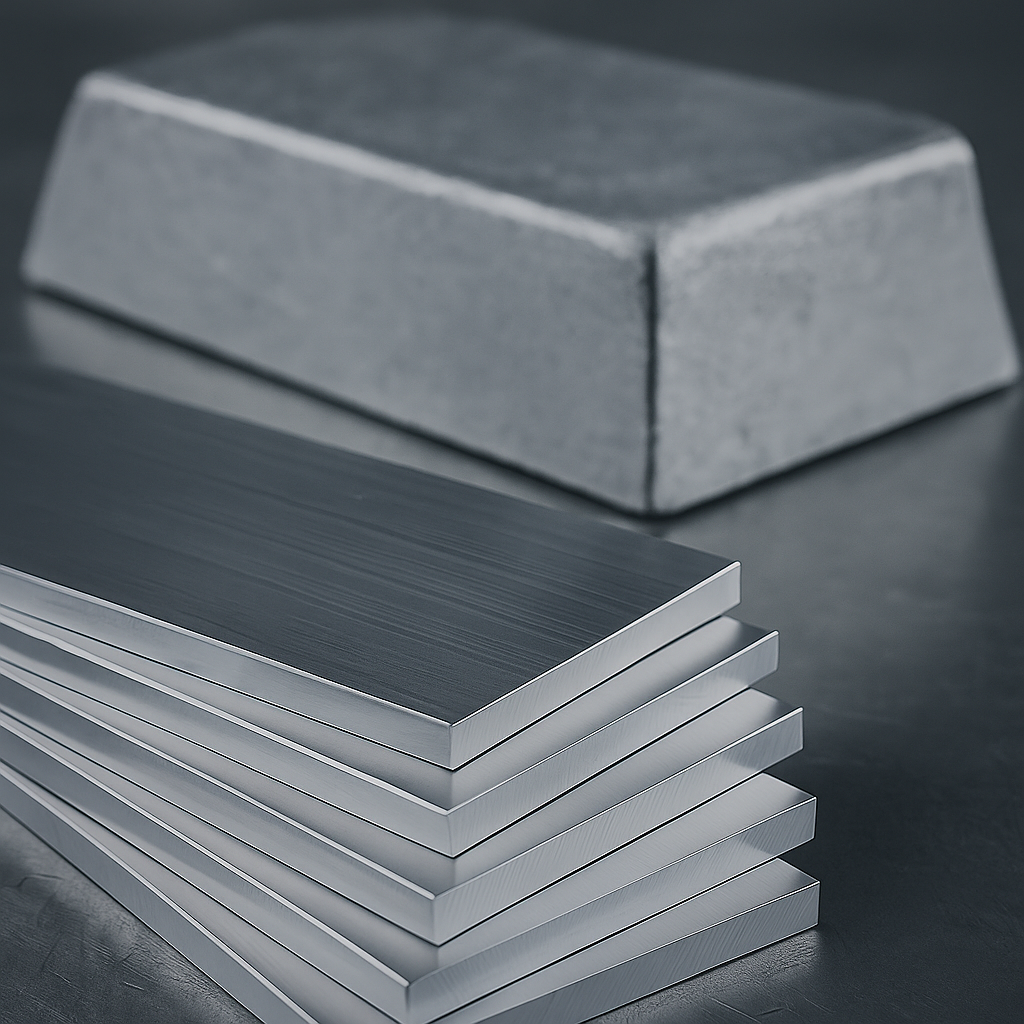What Are Aluminum Alloys?
Aluminum alloys are metallic materials that generally consist of 90–96% aluminum, combined with one or more elements to improve mechanical and physical properties.
Although many metals can form alloys with aluminum, only a few exhibit significant solubility, making them suitable as major alloying additions. Among these, zinc, magnesium, copper, and silicon are the most common and important alloying elements.
Types of Aluminum Alloys
Aluminum alloys are created by combining aluminum with other elements.
The type and percentage of these elements greatly affect the material’s final properties.
For this reason, aluminum alloys are grouped and coded into several series based on their composition and performance.
Series 1000
Known as commercially pure aluminum alloys, these have excellent electrical and thermal conductivity as well as outstanding corrosion resistance.
Series 2000
Composed mainly of aluminum and copper, these alloys offer high strength but relatively low corrosion resistance.
Series 3000
Made with aluminum and manganese, these alloys are known for excellent corrosion resistance and great weldability.
Series 4000
This series contains aluminum combined with silicon, often used for applications requiring improved wear resistance and flow characteristics in casting.
Series 5000
Containing aluminum and magnesium, these alloys are highly resistant to corrosion and are ideal for marine and outdoor applications.
Series 6000
One of the most versatile and widely used types, this series includes aluminum, magnesium, and silicon — offering a balance of strength, corrosion resistance, and formability.
Series 7000
Made primarily with aluminum and zinc, these alloys have exceptional strength but lower corrosion resistance, commonly used in aerospace and high-performance applications.

Casting Aluminum Alloys
In general, cast aluminum alloys share many properties with wrought ones, but certain characteristics are prioritized during alloy selection for casting, such as:
Ease of Casting:
Alloys with higher silicon content (Series 3xx.x) offer excellent fluidity and mold filling.Strength:
Series 2xx.x alloys provide very high strength but are harder to cast and less suitable for surface finishing.Machinability:
Series 5xx.x and 7xx.x alloys are easier to machine and polish, though they are more difficult to cast compared to Series 3xx.x alloys.
